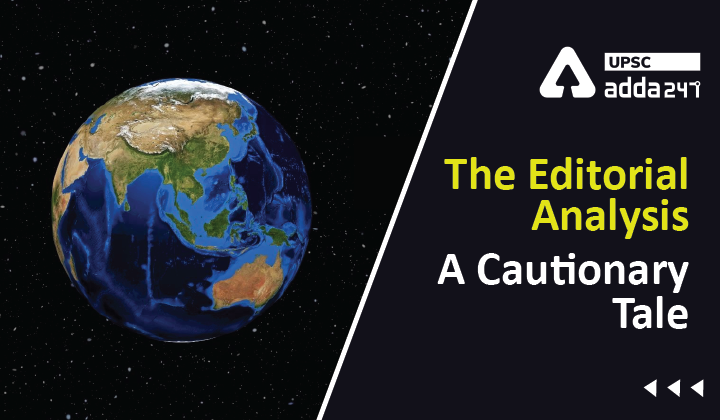Table of Contents
IPCC 2022 Report- Relevance for UPSC Exam
- GS Paper 3: Environment- Conservation, environmental pollution and degradation.
IPCC 2022 Report- Context
- Amidst global turmoil, the Intergovernmental Panel on Climate Change (IPCC) has a message that the present and future man-made impacts of climate change are predictably dire.
- IPCC is the largest international consortium of scientists analyzing and reviewing the evidence on the present and future man-made impacts of climate change.
IPCC 2022 Report- Key Observations
- Limiting Global Warming to 1.5°C: The world faces unavoidable multiple climate hazards over the next two decades with global warming of 1.5°C.
- Even temporarily exceeding this warming level would mean additional severe impacts, some of which will be irreversible.
- The rise in weather and climate extremes has led to some irreversible impacts as natural and human systems are pushed beyond their ability to adapt.
- The IPCC report 2022 notes that most of the targets that countries have set for themselves are too far in the future to have an impact in the short term at meaningfully reducing the climate impact.
Climate Change 2022: IPCC Sixth Assessment Report
IPCC 2022 Report- India’s Commitments on Climate Change
- India’s Commitments: In COP26 Summit, India declared that it will achieve net-zero emissions latest by 2070, that is, there will be no net carbon emissions.
- By 2030, India would also ensure 50% of its energy will be from renewable energy sources.
- Inadequacy of the Commitments: None of the above commitments of India can help the 1.5°C mark from being breached.
IPCC 2022 report- Climate Change and Threats to India
‘Wet-Bulb’ Temperature: Wet-Bulb is an index of the impact of heat and humidity combined — and its effect on health. According to one of several studies cited in the IPCC report-
- Lucknow and Patna were among the cities predicted to reach wet-bulb temperatures of 35°C if emissions continued to rise.
- Bhubaneshwar, Chennai, Mumbai, Indore, and Ahmedabad are ‘at risk’ of reaching wet-bulb temperatures of 32°C-34°C with continued emissions.
- This will have consequences such as a rise in heat-wave linked deaths or reduced productivity.
- Rise of Global Sea level: Global sea levels will likely rise 44cm-76cm this century if governments meet their current emission-cutting pledges.
- But with higher emissions, and if ice sheets collapse more quickly than expected, sea levels could rise as much as 2 metres this century and 5m by 2150.
- India is one of the most vulnerable countries in terms of the population that will be affected by sea-level rise.
- By the middle of the century, around 35 million of its people could face annual coastal flooding, with 45 million-50 million at risk by the end of the century if emissions are high.
IPCC 2022 Report- Conclusion
- Experience has shown that partisan economic calculations trump climate considerations, but India must shore up its adaptation measures and urgently move to secure the futures of its many vulnerable who have the most to lose.
Climate Change 2022: IPCC Sixth Assessment Report





 TSPSC Group 1 Question Paper 2024, Downl...
TSPSC Group 1 Question Paper 2024, Downl...
 TSPSC Group 1 Answer key 2024 Out, Downl...
TSPSC Group 1 Answer key 2024 Out, Downl...
 UPSC Prelims 2024 Question Paper, Downlo...
UPSC Prelims 2024 Question Paper, Downlo...





